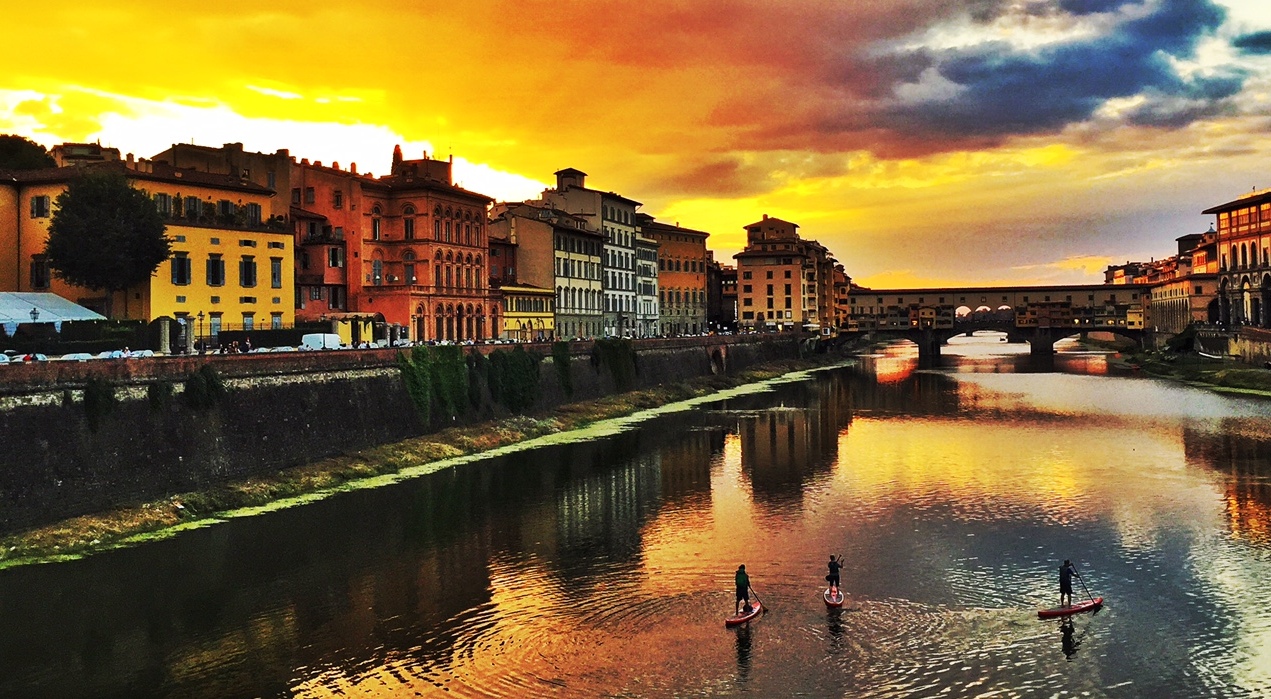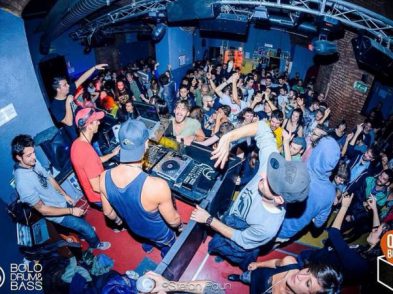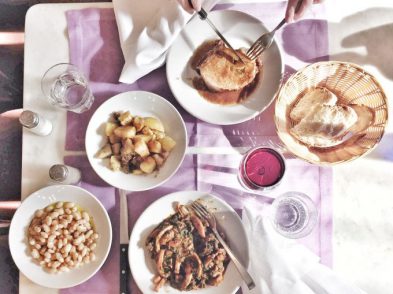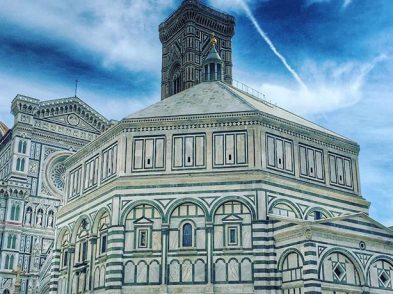“Un momento, signorina,” says the man behind the desk, sighing reluctantly and looking down at his computer.
I admit that most people would have given in by now. It’s my third trip to the phone store this week in an effort to understand how I ended up in negative phone credit without making any calls, yet I refuse to speak English. Like the other language battles I have wagered over the past months, my desire to speak Italian at every opportunity is prone to taking over like a powerful force. (For the record, the explanation as to how I ended up in credit debt confused even my Italian friend, who I brought along for Round Four.)
This stubbornness I never knew I had is one of the countless crazy things I have learnt about myself since settling into Florence. It is reputed Charlemagne once said that to have another language is to possess a second soul. My second soul, it would seem, has an aura of cappuccino, but enjoys chats with the barista more than the taste of the coffee.
After years of memorizing verbs and past participles, taping sheets on the subjunctive to the shower and convincing myself that Roberto Benigni films constitute study, now the chance to practise what I’ve learnt in Florence provides an adrenaline rush that most would attribute with something a lot more exciting than ordering a coffee or sorting out their phone bill.
My new cappuccino-scented soul is exploitative in nature as I find myself drawn towards people who will speak to me in Italian. A friend of a friend has a friend in Florence and asks me to come over for Sunday lunch. “Ma certo!” Traipsing around the city with map in hand, an unfamiliar outgoingness has me ringing the doorbells of these unknowns. “Ciao, sono Kate!” I say happily, over crackling intercoms that seem as old as the buildings themselves.
More than just wanting to speak Italian, Florence has made me want to fit in with Italians. When a colleague spies the red takeaway coffee cup from my local bar and casually inquires if it is from Arnold’s (a Starbucks-esque chain) I treat the comment like an accusation, feeling the need to defend myself from any association with the city’s least Italian coffee shop. Then there’s the music. To my neighbours, I’m sorry. I realise that blasting Con te partirò daily was never going to make me fluent but as placebo study it certainly provided linguistic and emotional sustenance.
It is not just the Italian language that has made me crazy: some responsibility has to go to Florence. After analyzing and appreciating Renaissance frescoes with their startling perspective, and domed churches and chapels that create a light-filled heavenly space, my appreciation for art and architecture from other historical periods is heavily undermined. Gothic cathedrals now feel stark and somber, while in Baroque churches I cringe at the cluttered mass of gold and black. When I do find a church, a monument or a work of art that takes my fancy there is always that voice in the back of my head that compares it to Florence.

Newly developed character attributes aside, bringing my Italian studies to their home country has added another layer of appreciation and enrichment to my travel experience. I wish I had kept count of the number of times I have been told to “make the most” of my time in Italy. Yet seeing Florence through a linguistic lens has let me savor every second of the language and culture I’ve witnessed. From peering at the newspaper headline of the person next to me at the bar to catching snippets of conversation on the train, every linguistic experience has inspired my immersion, adventure and gratitude for being in Florence.
Even small Italian words have left a big impact. It could be the lack of adjectives in my linguistic toolbox, but I use—and hear—the word bello to describe everything from the mundane (un bel libro) to the extraordinary (che bello spettacolo!). I have caught myself describing things that back home would receive a “good,” “great” or “nice” with an emphatic bellissima! I have come to appreciate the bellezza of my day-to-day sites and scenes: the single rower who glides between the Ponte alle Grazie and Ponte Vecchio, the mirror-like reflection of the Vasari Corridor in the Arno and the busker who stands on the corner of the Uffizi and whose music echoes through the loggia of piazza della Signoria.
Maybe that is what is so exciting about a new language: as you see changes in your language ability, you see changes in yourself. Hopefully, my newfound ability to recognise beauty in la vita quotidiana will make up for the crazier yet infinitely more satisfied person the Italian language has made me become.







